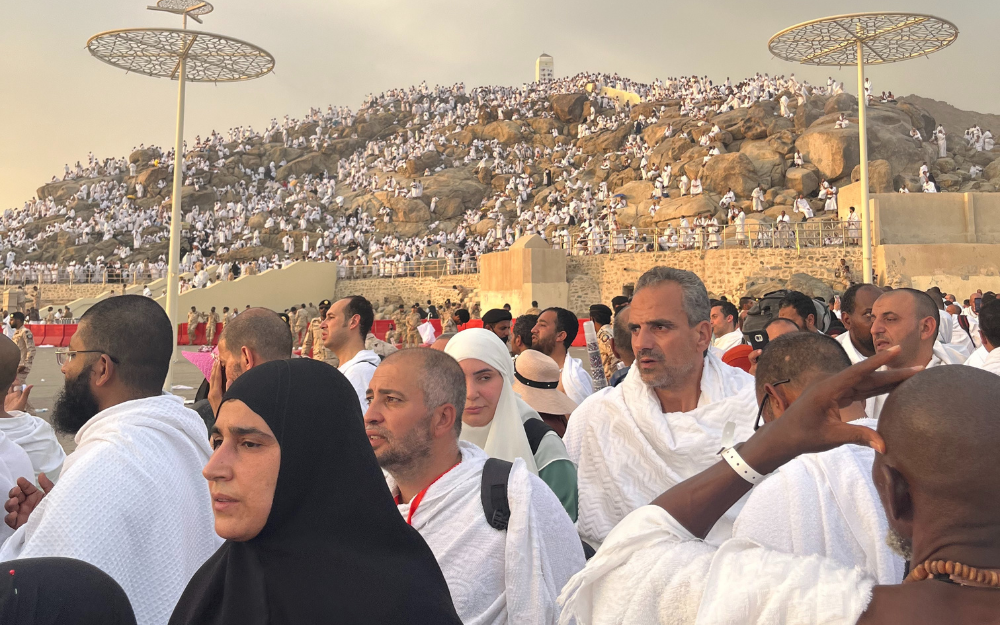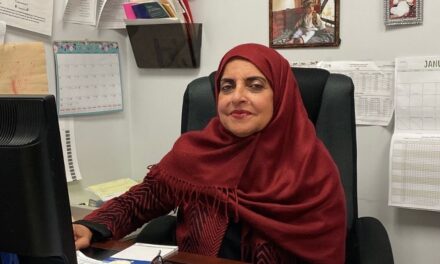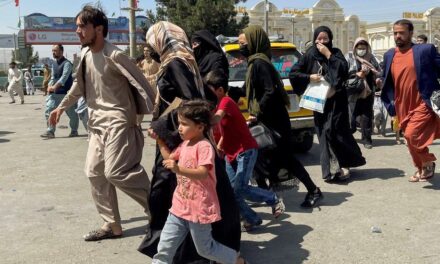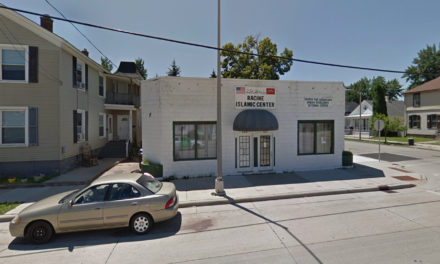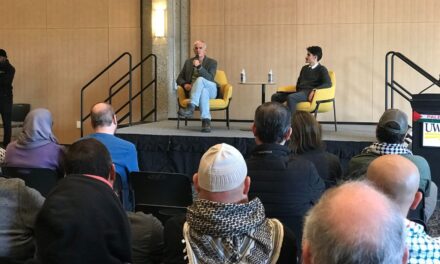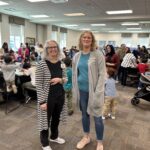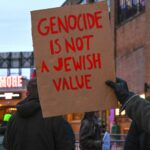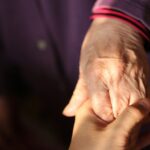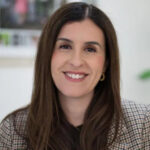Photos courtesy of Ahmed Chattha
Ahmed Chattha’s view at the ascent of Mount Arafat, considered the most important part of the Hajj pilgrimage.
Hajj, the annual Islamic pilgrimage to Mecca, that able Muslims are required to take once in their life, took place from June 14 to June 19 with Eid al-Adha celebrated on June 16. According to officials in Saudi Arabia, more than 1.8 million Muslims from around the world converged in and around Mecca for this year’s Hajj pilgrimage. Performed over five days, it includes weeks of travel, as well as long distances of walking, physical exertion and intense prayer. Since the time of Hajj follows a lunar calendar, this year it occurred during extreme temperatures.
Ahmed Chattha of Milwaukee is the general manager of Qamaria Yemeni Coffee Co. and is active in the community as a leader for ISM Core Young Adults and Professionals.
This year he felt a call to Hajj. He shared his personal experience with Wisconsin Muslim Journal. While he had done Umrah twice already, this was his first Hajj.
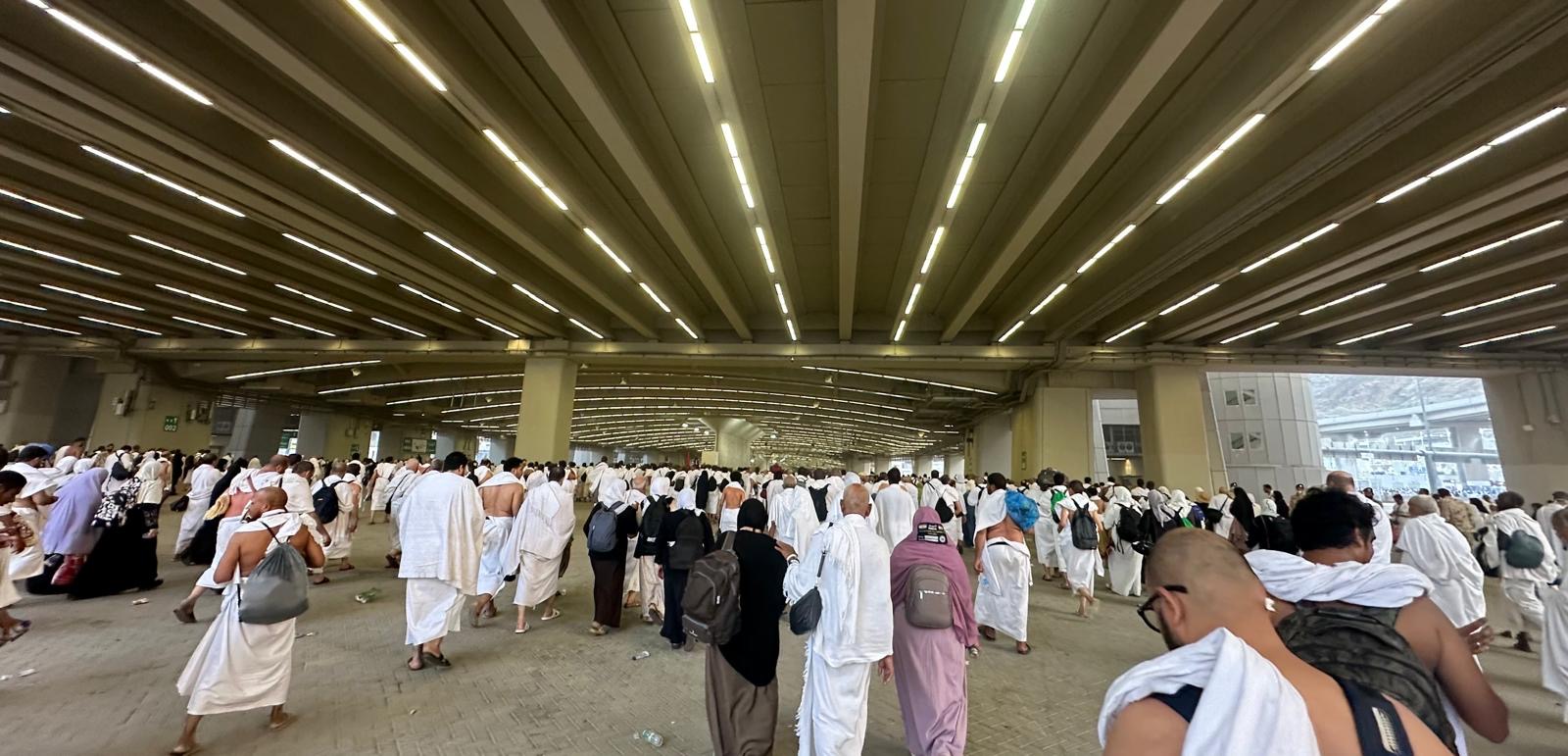
Ahmed proceeds to the Jamarat, which is on the way from Muzdalifah to Mecca, where Hujjaj (people performing Hajj) stone three pillars with pebbles to follow Prophet Ibrahim stoning the devil who tried to dissuade him from following God’s command.
How did you know this was your time to go?
There’s over two billion Muslims in the world, but only about two million are chosen to go for Hajj. That feeling of being chosen is really what brings you to it. We as Muslims yearn to go and fulfill our obligation, but everyone has a personal story of how they were chosen. For me, a lot of that came through support from family. And especially since my brother and father’s passing, this felt like the pinnacle of my spiritual journey.
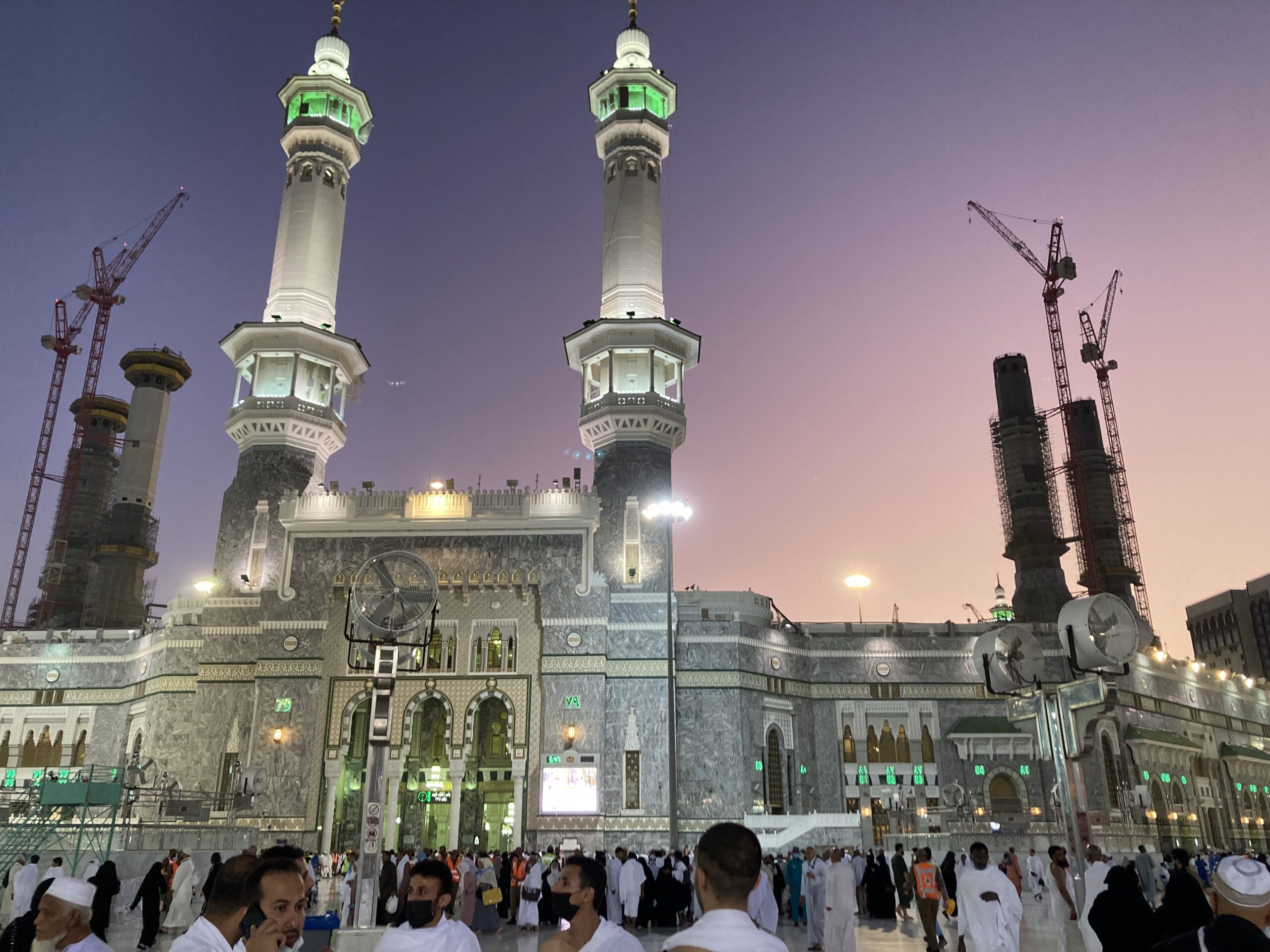
Pilgrims congregating outside the King Abdulaziz Gate of Masjid Al Haram.
What is the registration process like?
We did not end up going directly through the US; it was actually done through the Pakistani embassy. My cousin also went and did it that way, so he helped me out greatly through that process. But we did fly from the US into Jeddah, and then we took a bus to Medina.
How did you know what to do while you were there?
Part of that definitely comes with simply following the group, while also knowing what the ritualistic preparations are. You need to be with people and learn from teachers who can give you guidance. Behind each ritual is a meaning, so knowing the connection and significance of each one is important.
What were your physical and spiritual preparations?
Physically, over the last few years I started prioritizing my health a lot more even before Hajj became a thought. But once Hajj came into the picture, I realized that it was the purpose of what I was doing.
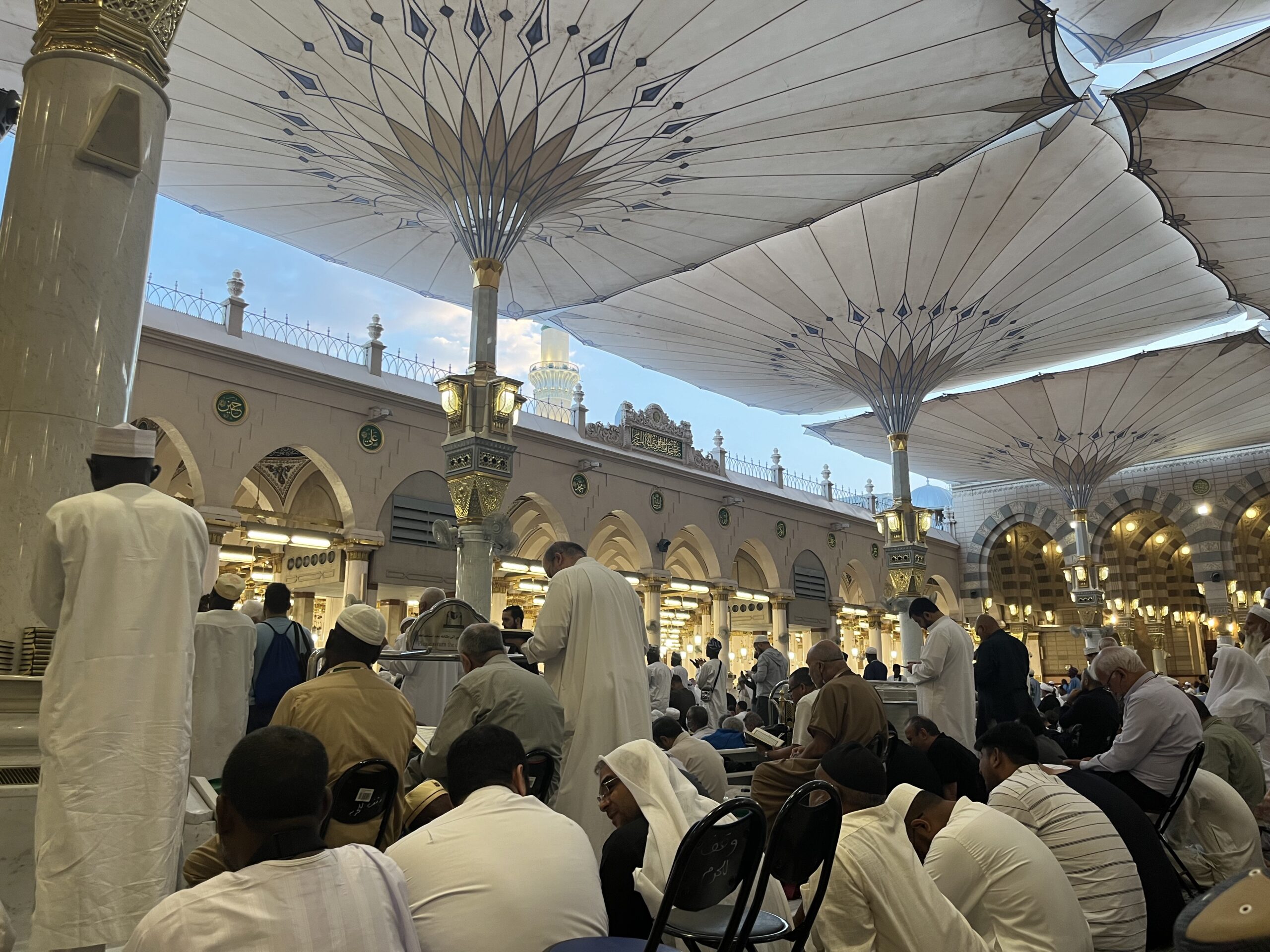
The scene shortly before evening praying in the courtyard of Masjid Al Nabawi in Medina
What sensations stuck out to you during Hajj?
The biggest sensation was definitely from the sun, burning your neck while you’re dehydrated and exhausted. Coping with that comes supporting one another, but water only goes so far; you need electrolytes. We all came prepared though and survived it together. My friends definitely caught some good moments of me sleeping on video. It was amazing that I was able to sleep. You come with all these preparations and prayers you want to make, but then the reality of how physically limited you are hits you. But that’s part of the struggle and the beauty of Hajj, all for God’s pleasure. That’s what we hope to attain.
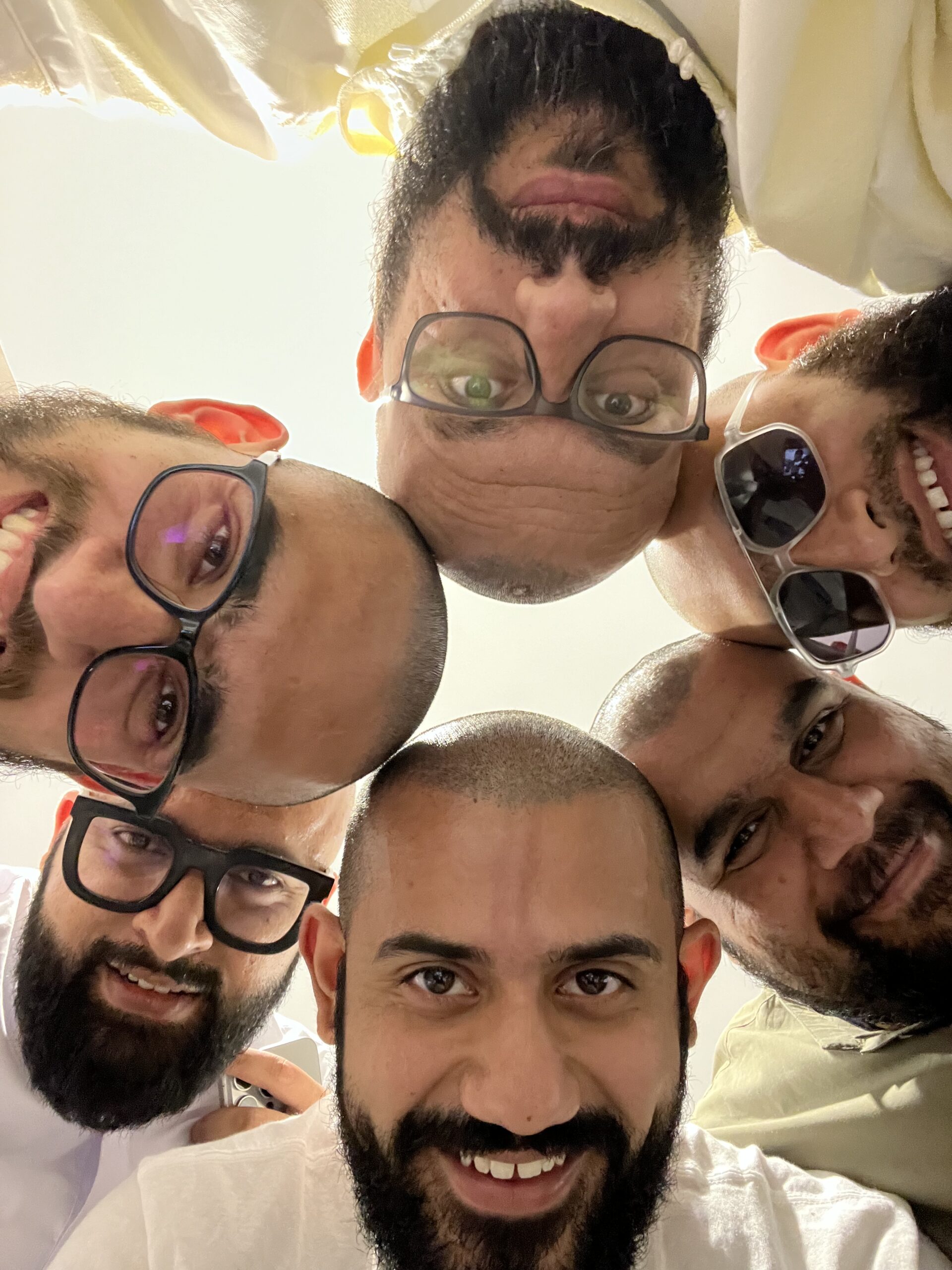
Ahmed’s group after shaving their heads and completing the main rituals of Hajj
What surprised you most?
I think it was realizing how limited we are in our capacity as individuals, and how important it is and lucky we are to have one another. There were situations in my group where we were waiting in line for the bathroom or dealing with the heat or exhaustion or thirst, and everyone was struggling with that all at once. You lose your manners quickly, but if you are patient with each other, we believe that you are entirely forgiven for that. There’s people who are experiencing those same sensations as you yet are still so giving and generous towards others. Their concerns are for the entire group’s well-being. It made me think about how I could reach that level of givingness and care, and that was very inspiring.
The Saudi forces that were there would spray water on us and give a smile while congratulating everyone. They would say “Hajj Mubarak” to us and that brought so much happiness in the middle of such a physically demanding situation. This was the environment that our religion came from, and despite how much it can bring you to your knees, our prophet kept his manners and kindness through that same desert heat. It was a powerful reminder.
Who did you meet?
I sat next to a man while we were still in Medina before we embarked on the journey. He was from Egypt and moved to Canada, where he is a leader at a mosque. He shared how he had been trying to bring his family, with a newborn, over to Canada after being there without them for a long time. Eventually they were able to come, and that’s a story that a lot of people hear, where families are abroad and a lot of sacrifices are made. I had lunch with him, and the mosque we were at provided us food; they gave us bread with a spice mix and dates and yogurt. He took what I had and mixed and shook everything together, and that ended up being the best meal I had on the entire journey.
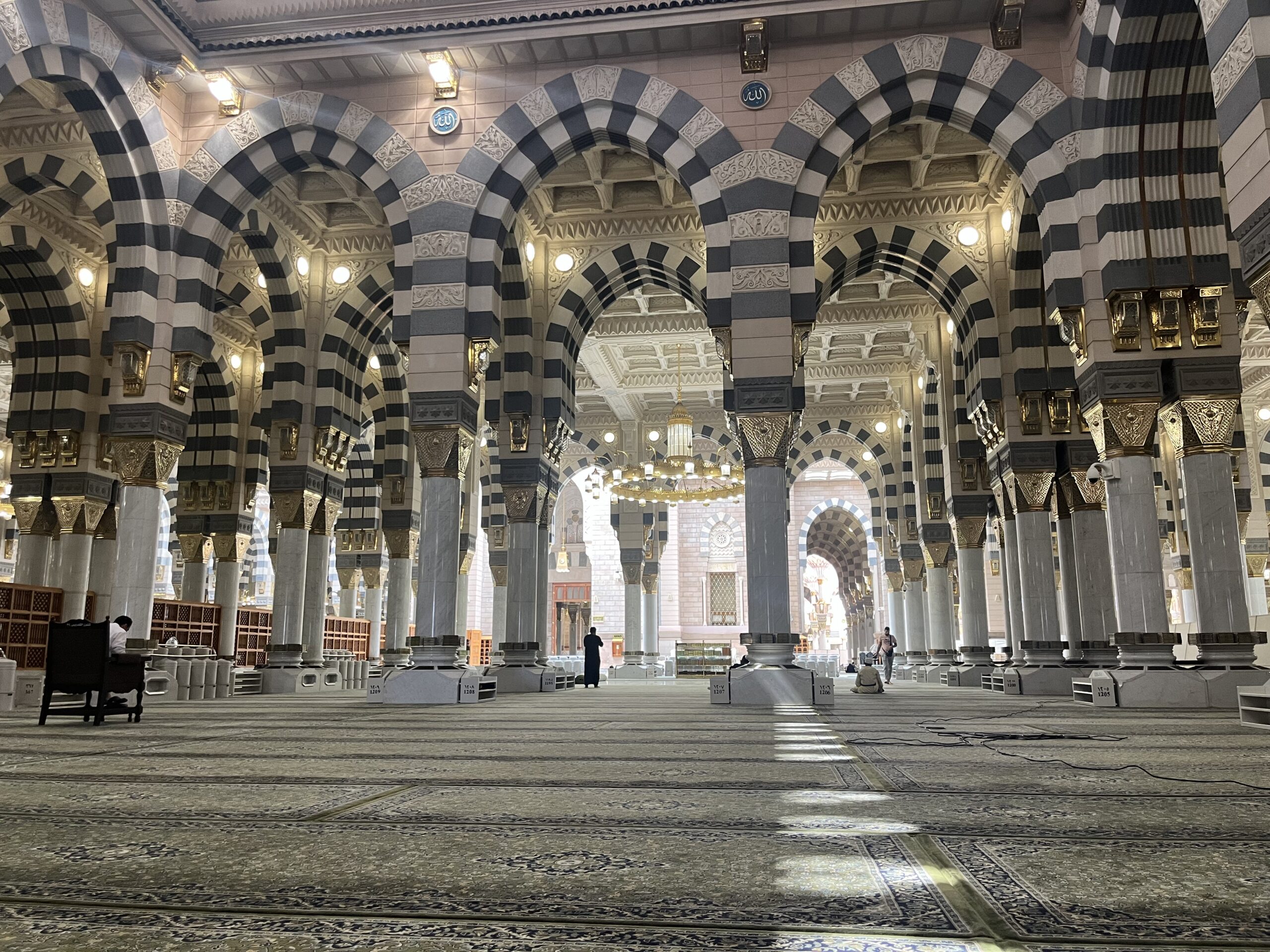
Early morning hours inside Masjid al Nabawi in Medina
Was there a point there where you felt most connected to God?
For me, that moment was the Day of Arafah. We go to a place called Mount Arafat and pour our heart out to God, asking Him for everything that we want in this life and the next where the Prophet Muhammad’s Last Sermon gets delivered. Being on this holy mountain and understanding the significance behind it, while really feeling equal with all your brothers and sisters beside you, was the spiritual height of Hajj for me.
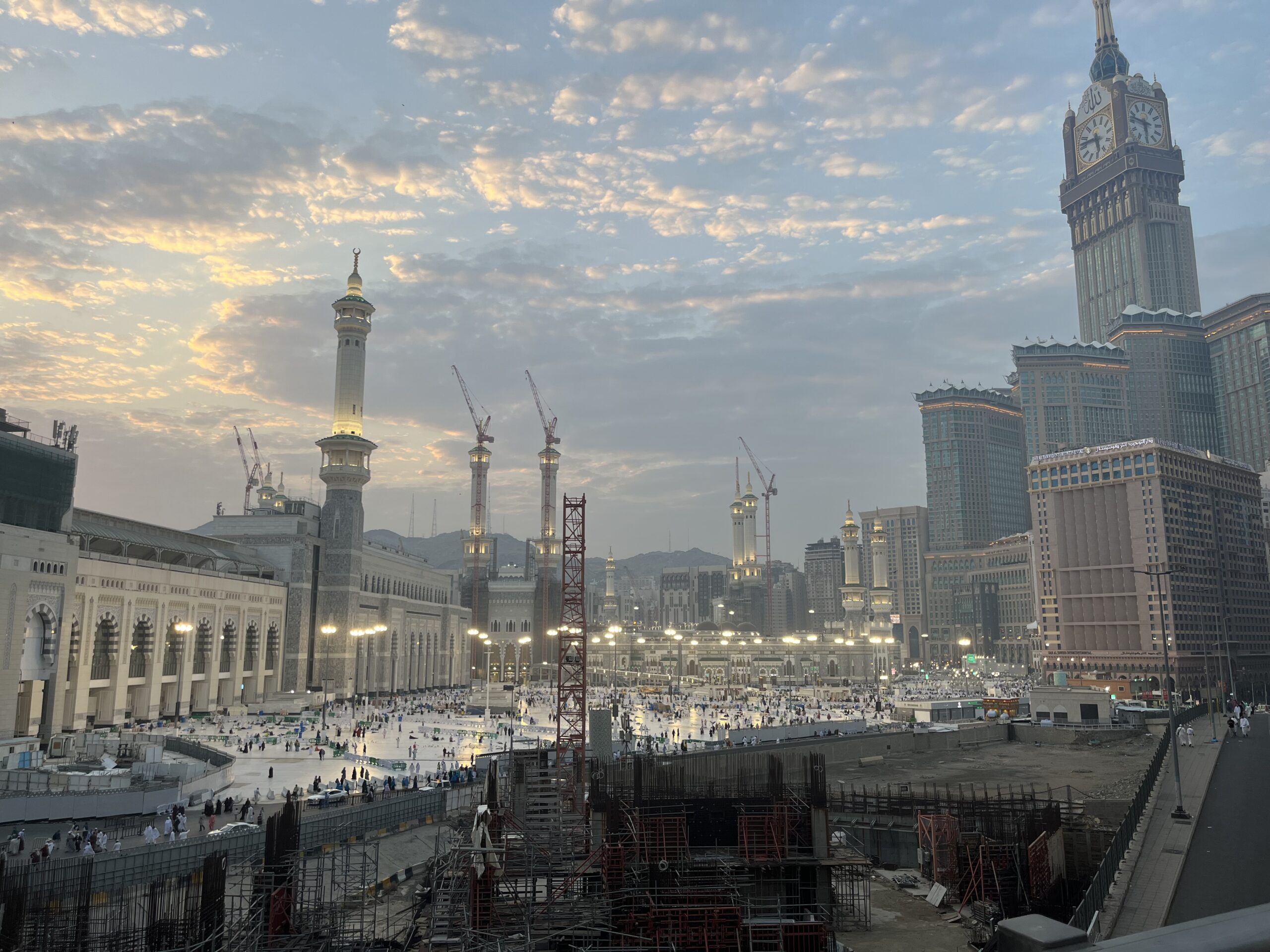
The view from Ahmed’s hotel of Masjid Al Haram with the new King Abdullah expansion on the left (Mecca).
When someone comes back from Hajj, how do people refer to you?
Different countries have different customs; one of my friends is from Uganda, and she said that once you return they refer to you as “al-Hajj” or in other places they call you “haji” which essentially means “a pilgrim” in Arabic. Women who make the pilgrimage are called “hajiya.”
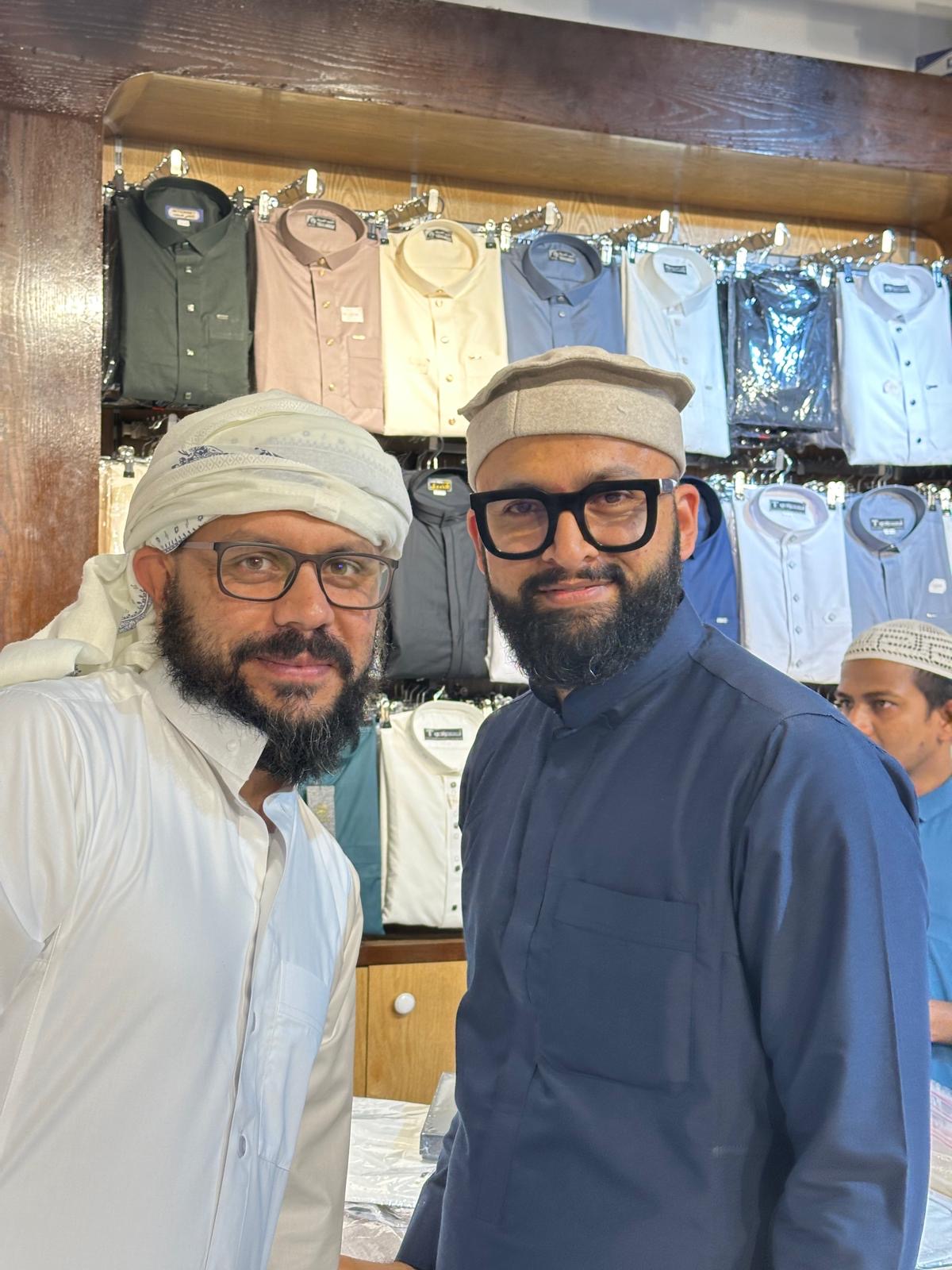
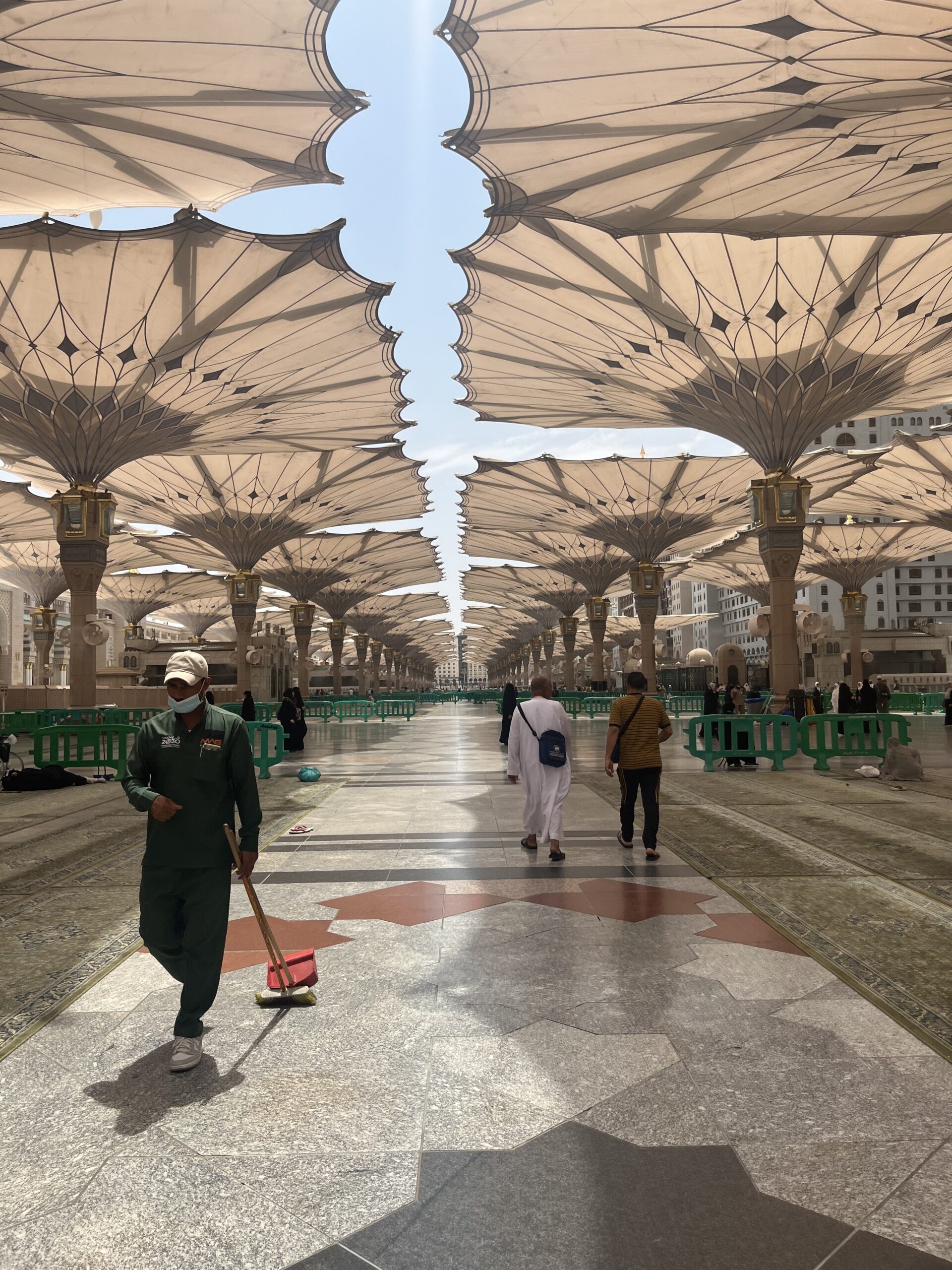
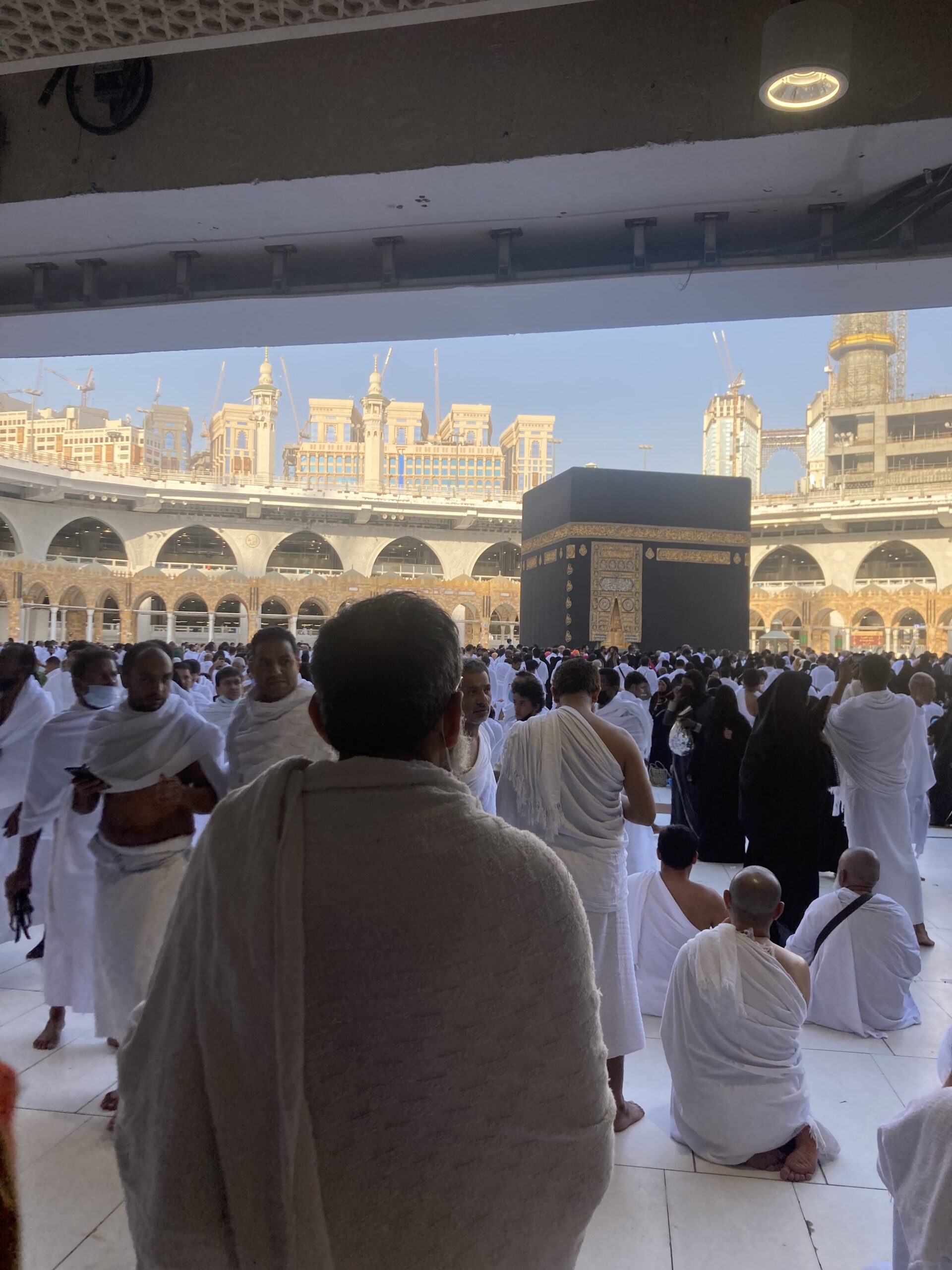
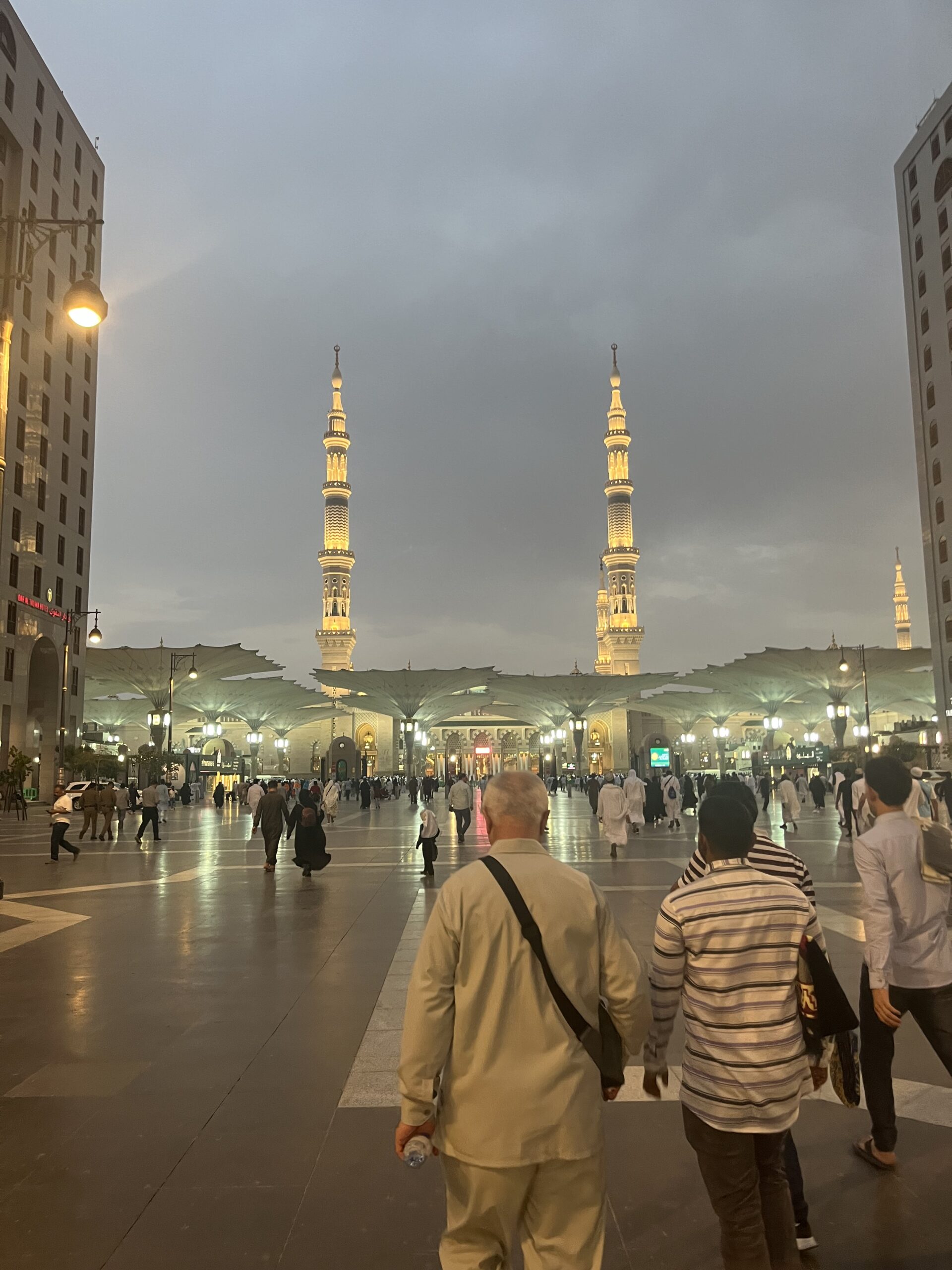
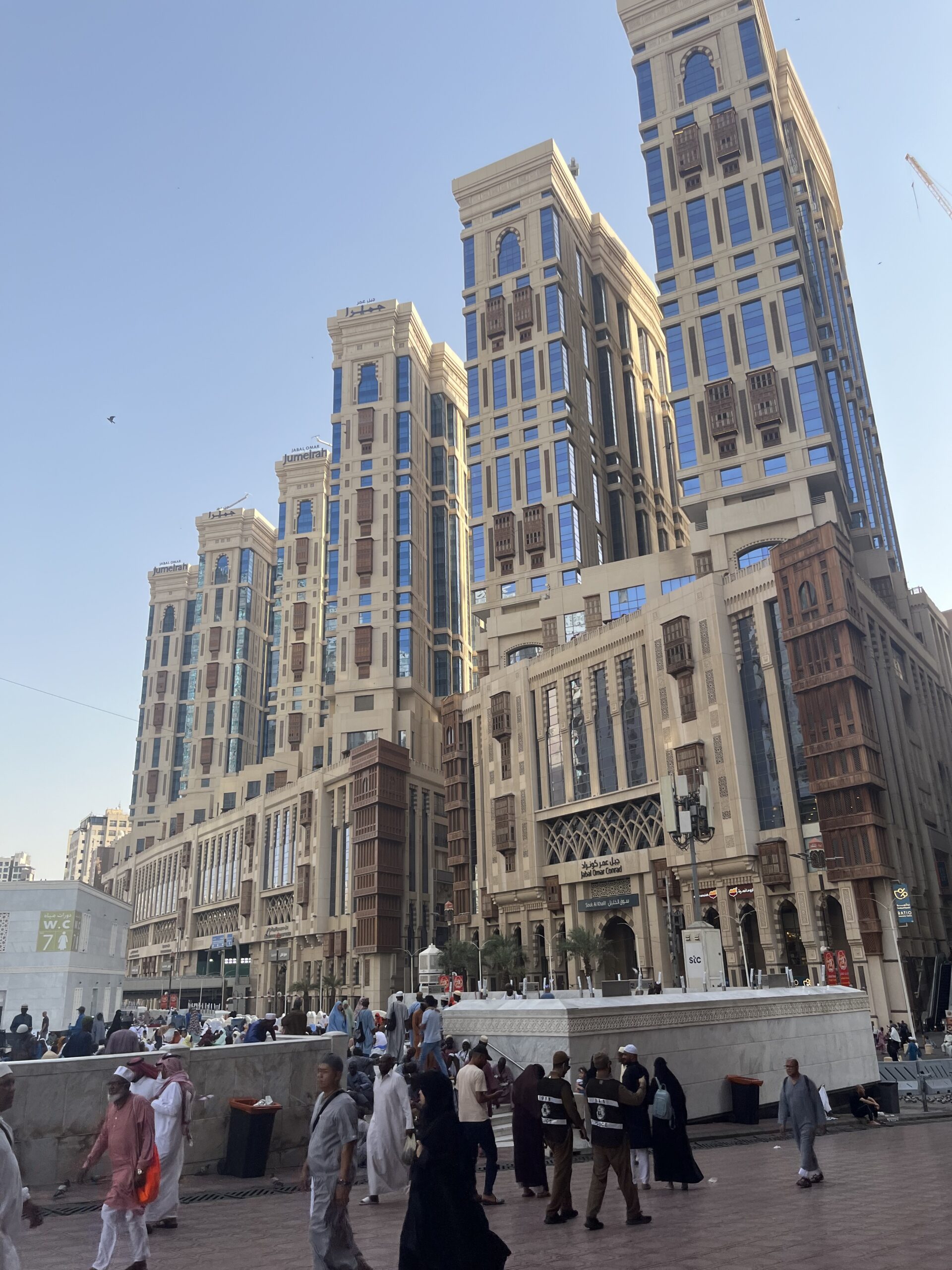
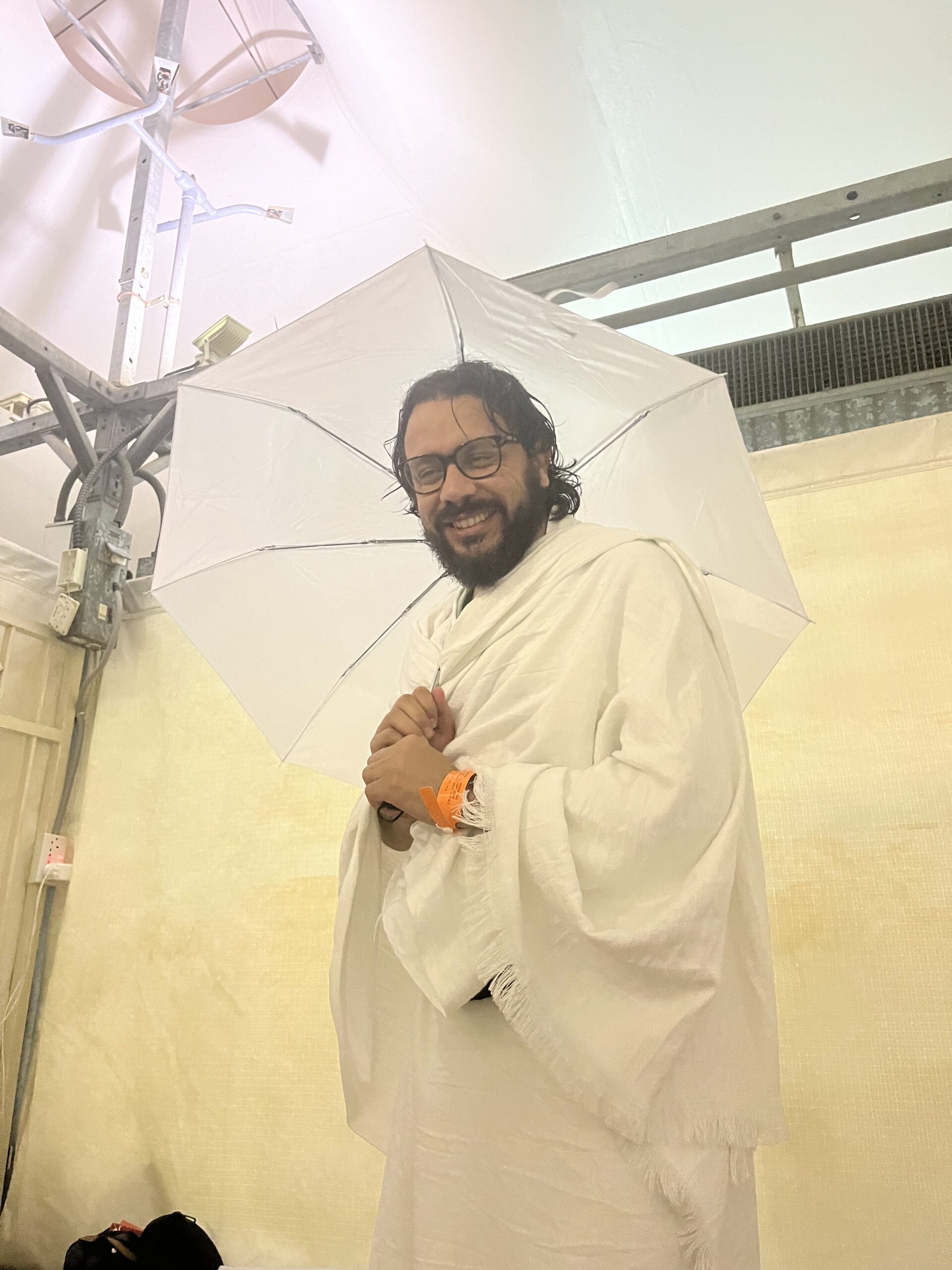
Do you feel like anything in your life is going to change since your return?
I hope so. We hope that we come back not just being forgiven for any of our sins, but to be different people. Personally, I want to be a good son and good spouse; those are the two things that I went there hoping for. Our time with our parents is so limited, and so are the moments we have with our spouses and families, so those are the things that I want to continue being better at.
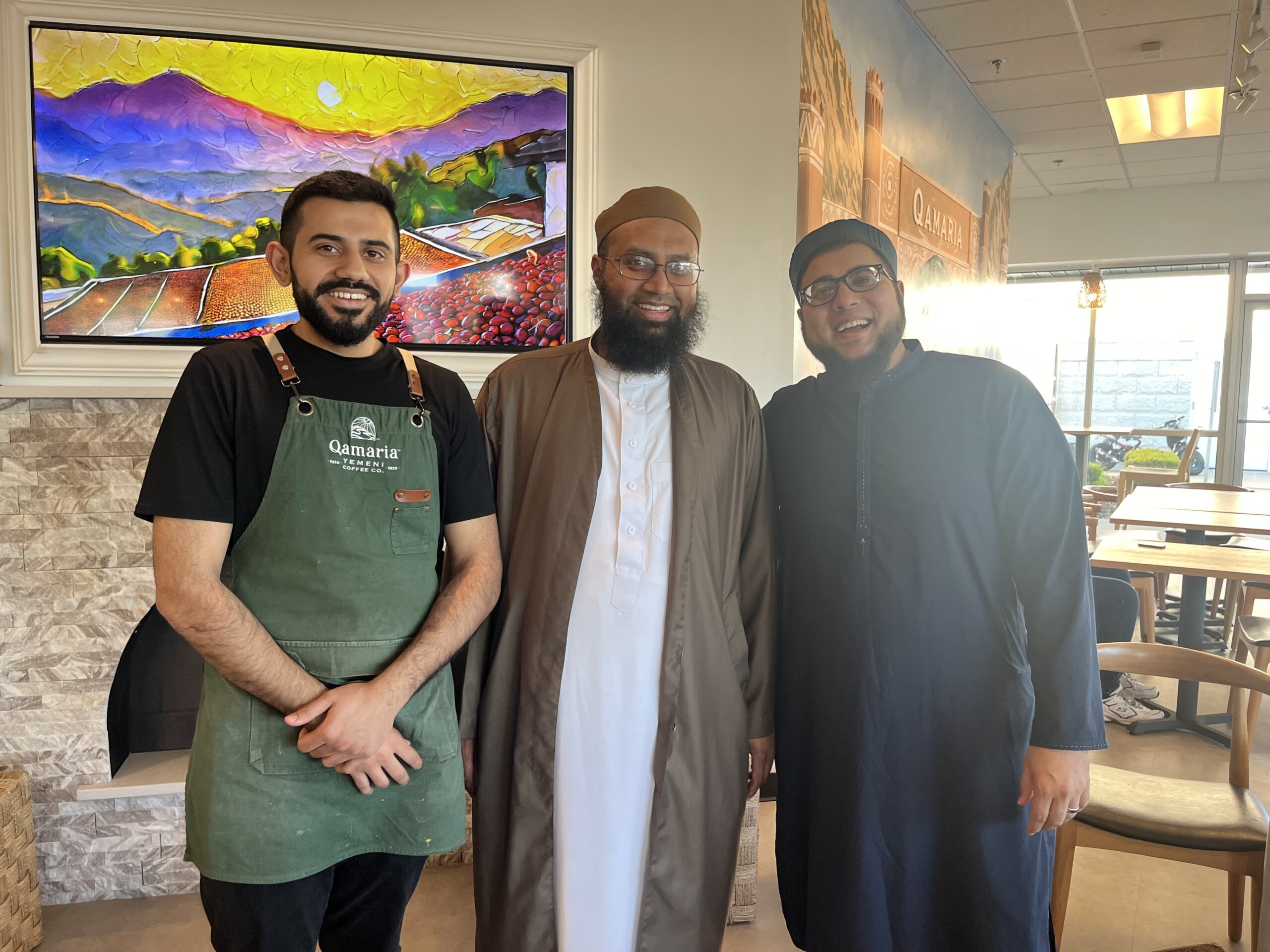
Ahmed Chattha (left) is general manager of Qamaria Yemeni Coffee Co. in Greenfield. Shown here with visiting scholar from Masjid Darussalam in Chicago (middle) and Ameer Hamza, imam at the Islamic Society of Milwaukee who also went to Hajj.
